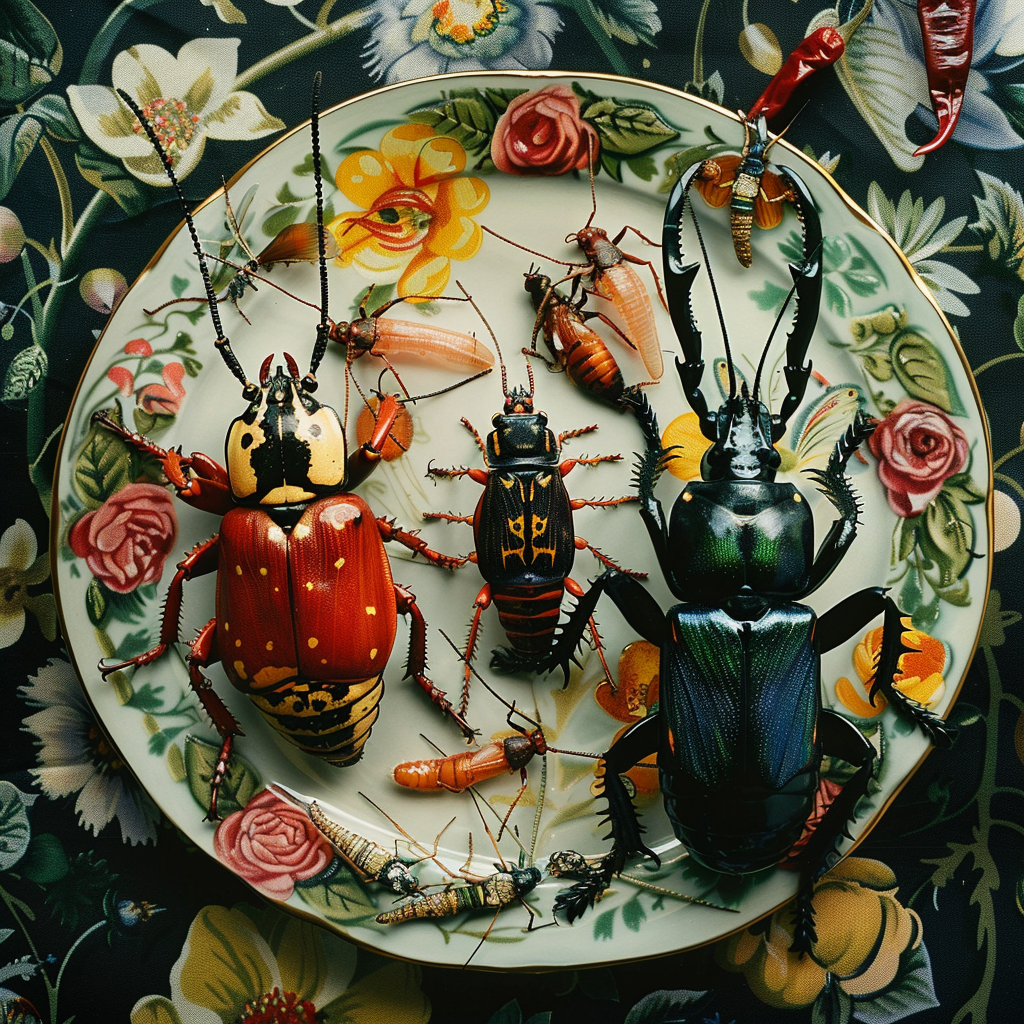The Bitter Taste of Bug Consumption: Why the Trend Needs to Be Squashed
Recently, a trend has been emerging worldwide: the rise of bug consumption. Supporters claim it’s an option for protein. Under the eco-friendly surface, there are several reasons why eating bugs is not as appealing as it seems.
Let’s start with the environmental benefits argument. While insects do require more resources to raise than livestock, the sheer scale needed for bug consumption to make a significant global impact is impractical. Those in favor of bug eating often overlook the land needed for large-scale insect farming, along with the water and energy demands involved. Additionally, the chemicals used in insect farming can affect ecosystems, worsening environmental problems instead of solving them.
Regarding nutrition, bug enthusiasts argue that insects are a source of protein and essential nutrients. However, this argument needs to consider the psychological barriers many people face when consuming bugs. Despite attempts to mask their appearance or taste-rooted aversions to insects, food exists in societies. It’s unrealistic and unnecessary to force individuals to overcome feelings of disgust when other protein sources are readily available.
Furthermore, we cannot ignore the health risks linked to eating insects.
Insects have been found to carry substances and toxins that threaten human health if not handled and prepared correctly. Allergic reactions to insect species are also problematic, with symptoms ranging from discomfort to severe anaphylaxis. The insect farming industry’s lack of regulation and oversight exacerbates these dangers, exposing consumers to contamination and sickness.
Apart from health-related issues, there are concerns regarding the use of insects for human consumption. Like all living beings, insects are sentient creatures capable of feeling pain and distress. Subjecting them to captivity, breeding, and slaughter purely for satisfying desires raises questions, especially when there are alternative methods that do not involve exploiting living creatures.
The excitement surrounding the idea of consuming insects as a food source is at its best. At worst, deeply problematic. The argument for eating bugs is filled with challenges and uncertainties, from worries and nutritional deficiencies to health hazards and ethical dilemmas. Instead of promoting a practice that may cause disgust or raise moral concerns, it would be more beneficial to focus on creating genuinely sustainable and ethical food systems that prioritize both people’s well-being and the planet’s health.
Eating bugs might be trendy. Promoting it could lead to long-term consequences.
Some Expert commentary:
“Eating bugs is not a sustainable solution to food security and can have negative environmental impacts.” – Dr. James O. Hill, Professor of Nutrition and Medicine at the University of Colorado.
“Insects are not a panacea for world hunger; they are not a miracle food that will solve all our problems.” – Dr. Arnold van Huis, Professor of Tropical Entomology at Wageningen University in the Netherlands.
“The idea of eating insects is a hard sell for many people, and it’s not clear if it will ever become mainstream.” – Dr. Robert Nathan Allen, founder of Little Herds, a nonprofit organization promoting the use of insects for food and feed.
“There are potential health risks associated with eating insects, including allergic reactions and the possibility of consuming harmful bacteria or parasites.” – Dr. Florence Dunkel, Professor of Entomology at Montana State University.







